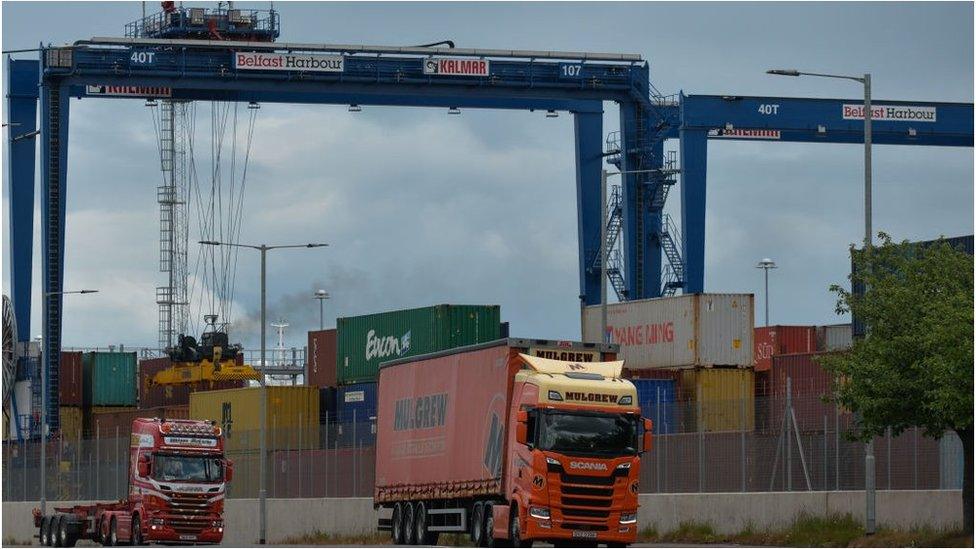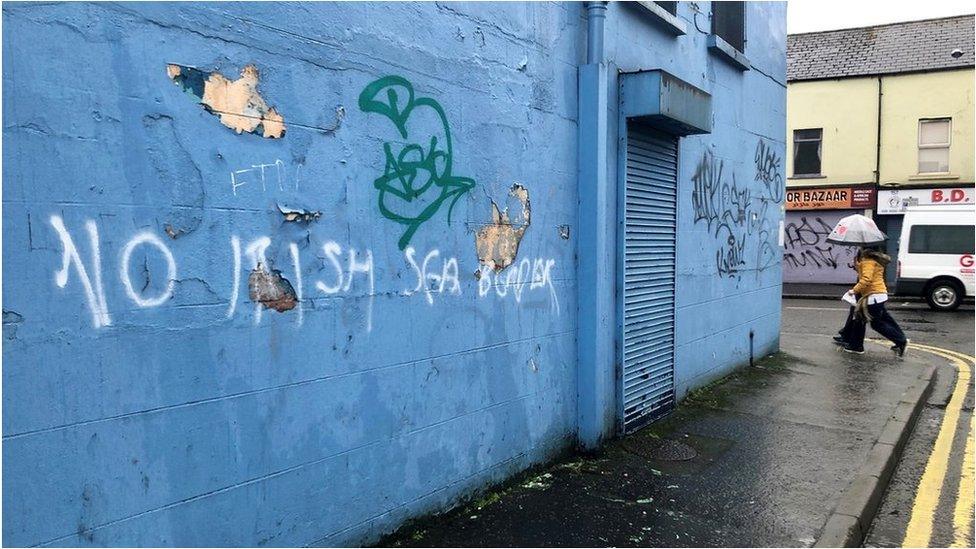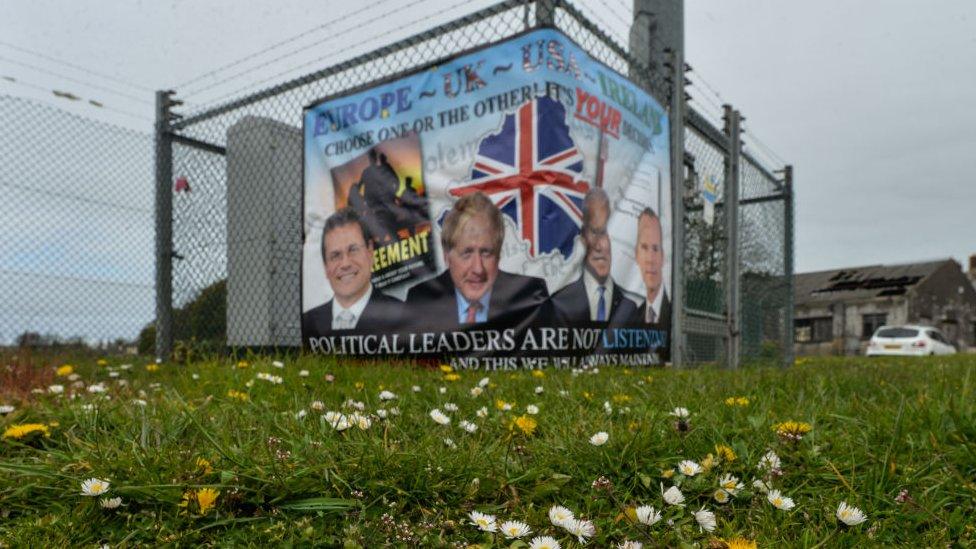Brexit: Can the UK and the EU reach a deal on Northern Ireland?
- Published

Arguments have intensified between the EU and the UK about the post-Brexit status of Northern Ireland. It is a special case, involving the UK's only land border with the EU and a history of violent political division.
The Northern Ireland protocol was created to avoid the return of a "hard" trade border on the island of Ireland. Instead, all goods moving across the Irish Sea from Great Britain (GB) into Northern Ireland (NI) have to follow EU rules, even if they never leave the UK.
Both sides negotiated and signed the protocol, which is now part of international law, but they are struggling to make it work in practice.
What's the main problem?
The present system cannot cope with the number of checks required on goods entering Northern Irish ports from GB.
The UK government has unilaterally extended a series of grace periods.
But even so, the authorities in Northern Ireland are struggling to deal with demand.
Northern Ireland's chief vet Robert Huey said in April his team was conducting more checks on products of animal origin moving across the Irish Sea than France was at all its ports.
It was also conducting 325 documentary checks every day, he said, while Rotterdam, one of the busiest ports in the world, had only 125.
This is partly because containers arriving in Rotterdam are often full of one commodity, whereas each supermarket lorry crossing from GB to Northern Ireland contains multiple loads, all of which might need to be checked.
Northern Ireland's Department of Agriculture, Environment and Rural Affairs (DAERA) told the BBC a weekly average of 2460 documentary checks, 2200 identity checks and 170 physical checks were being carried out in the six week period from 21 April to 6 June.
If all the current grace periods expired, Mr Huey has said his team would need to conduct nearly as many checks on food as were being conducted in the whole of the EU. And he has only 12 vets.

Is there a Swiss-style solution?
The EU says many of these problems would disappear if the UK agreed, temporarily, to follow the EU's veterinary arrangements.
And it has suggested an agreement a bit like the one it has with Switzerland.
This would remove all border checks and veterinary declarations for British food entering Northern Ireland or the EU. The EU says it would reduce total checks by 80%.
In return, the UK would have to abide by the EU's food-hygiene rules, even when they change in the future.
But the UK refuses to accept this, saying moving away from EU rules was one of the main reasons for Brexit.
Confused by Brexit jargon? Reality Check unpacks the basics.
There is also concern following EU rules could make it harder to agree a trade deal with the United States, even though there is no sign of such an agreement on the horizon.
What about a New Zealand-style solution?
The UK would prefer an arrangement in which the EU would recognise UK food-production standards as being equivalent to its own, rather like the one the EU has with New Zealand.
This would reduce trade friction but not by nearly as much as a Swiss-style deal.
There would also need to be agreements allowing products intended for the Northern Ireland market only, which are not going to be sent across the land border into the EU, to avoid checks altogether.
But any potential solution also relies on a degree of mutual trust, which is in very short supply.
Hopes a meeting of leaders could smooth some of the rough edges from the debate have been dashed.
And if anything, public disagreements at the G7 summit have made matters worse.

What's the legal argument?
The UK says the EU is sticking to "legal purity" rather than seeking practical solutions, and it needs to show more flexibility in the way the protocol is implemented on the ground.
The government points to Article Six of the protocol, which commits both sides to use their "best endeavours" to facilitate trade between NI and GB.
This phrase carries significant legal weight. It means both parties should take all the measures any reasonable person would take, to achieve the desired result.
And the UK says the EU should, therefore, compromise far more in order to remove restrictions on trade.
But this commitment to use "best endeavours" is not an absolute obligation or a guarantee.
And the EU will continue to stress it does not mean the UK can ignore the law.
The protocol promises to allow "unfettered access" for trade from Northern Ireland into Great Britain - but not the other way round.
And it doesn't say border bureaucracy can be removed altogether.
What might happen next?
The EU has already started legal action against the UK for failing to consult it about extending the grace periods - but things could soon get worse.
A grace period that allows chilled meats such as sausages to be sent from GB to NI expires at the end of this month.
And after that, in theory, it would be banned under EU rules.
The UK government says it won't allow this, and it has now suggested to the EU that the grace period should be further extended.
But Boris Johnson has also said he is willing to trigger Article 16, external of the NI Protocol, which would allow the UK to suspend parts of the agreement, if the EU fails to implement it more flexibly.
It's worth noting that the EU - itself - briefly invoked Article 16 in January in a row about vaccine exports, but withdrew the threat after a few hours.
If the UK government did trigger Article 16, the EU would step up its legal response.
And this could include moves to impose tariffs (taxes on imports) in other sectors - a full-scale trade dispute, which could easily escalate.
The two sides don't have long to find a compromise.

